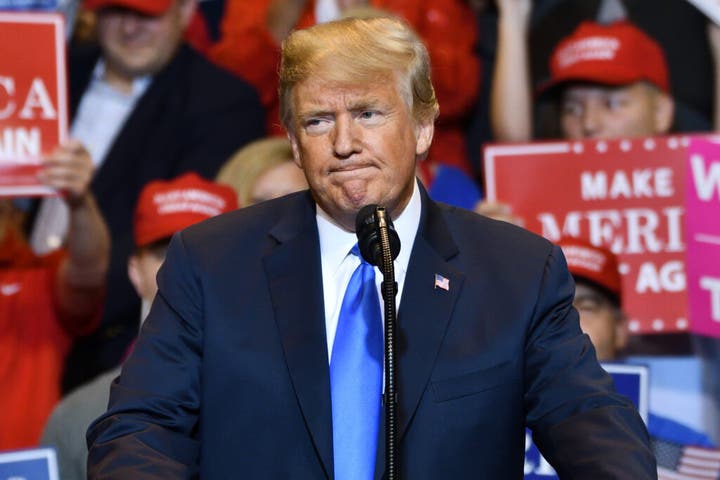
When President Donald Trump dropped the f-bomb while answering media questions about an Israel-Iran ceasefire breakdown on June 24—saying the two countries "don't know what the f**k they're doing"—he didn't flinch, backpedal, or apologize. But behind the headlines and viral clips lies a deeper psychological pattern that explains far more than a single outburst.
According to an expert, this moment wasn't a slip—it was classic Trump: a spontaneous, emotionally fueled response from a leader whose thinking is dominated by reflexes over reflection.
Trump May Be A ‘System 1’ Thinker
Psychologist Geoff Beattie, writing for The Conversation, argues that Trump's behavior aligns with a well-established psychological framework: what Nobel-winning psychologist Daniel Kahneman describes as "System 1" thinking. This system is fast, emotional, automatic, and intuitive. It's the part of the brain that reacts without pausing, optimized for survival—but not for diplomacy.
System 1 is like a workaholic, Kahneman wrote in his 2011 bestseller book “Thinking, Fast and Slow.” It churns out snap judgments instantly, often unchecked by the slower, more rational "System 2," which takes effort and deliberate thought to engage. Effective decision-making, Kahneman says, depends on System 2 reviewing and occasionally overriding the gut reactions of System 1. But not everyone has those brakes fully engaged.
That's where Trump comes in.
Beattie, who is a Professor of Psychology at Edge Hill University in the U.K., observes that Trump's decision-making style consistently exhibits this pattern: rapid, reactive, and emotionally charged—what many associate with "gut instinct." In his businesses and his presidency, Trump has often prioritized swift action over careful analysis. That style can thrill supporters by signaling strength and authenticity, but it can also spiral into volatility, as it did during the June 24 briefing.
Channeling Raw Emotion Into Public Speech
This kind of raw emotional expression has precedent in psychology. In the 1930s, researchers proposed the frustration-aggression hypothesis, which held that when individuals are blocked from achieving goals, the resulting frustration can manifest as aggression. Although now considered too simplistic, the model still offers insight: Trump's expletive came after a ceasefire he'd brokered fell apart within 24 hours—an acute case of diplomatic expectations crashing into Middle Eastern realities.
But what makes Trump unique, Beattie notes, isn't just that he gets angry. It's that he channels frustration directly into public speech, bypassing the filters most leaders rely on. The result? A moment of clarity for his base—and chaos for his advisers.
That moment also challenges norms around presidential language and conduct. While past presidents may have cursed behind closed doors, Trump's presidency has erased those boundaries. The question isn't whether it's "presidential"—it's whether it's intentional, or simply instinctive.
So why did Trump really use the f-word? Not for emphasis. Not for strategy. But because that's how his mind works under pressure—fast, emotional, and unapologetically unfiltered.
Read Next:
Photo: Shutterstock







